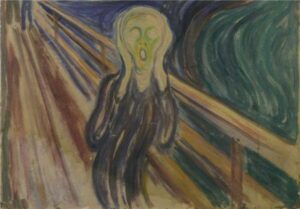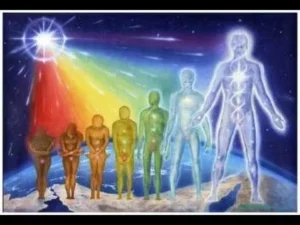 The Buddha said that suffering arises from craving — for instance, craving for more love, more possessions, more physical prowess or beauty. But sometimes I wonder if the truth is more akin to the reverse — that we crave our suffering. In other words, are we actually addicted to suffering?
The Buddha said that suffering arises from craving — for instance, craving for more love, more possessions, more physical prowess or beauty. But sometimes I wonder if the truth is more akin to the reverse — that we crave our suffering. In other words, are we actually addicted to suffering?
In the past, I have occasionally mentioned my brother in my writing. He has suffered from mental illness all of his life and lives in an assisted living facility for the disabled in my hometown. I call him every Sunday. Some weeks are good, others are bad.
Yes, my brother has physiological reasons for his suffering, but he also tends to become unnecessarily mired in it. Because of his sensitivity, things that would seem minor to most of us can send him into a tail spin. Recently, relatively minor problems with his car freaked him out so badly that he ended up in the hospital for a day. Other days, an offhand comment or look from someone (who was probably just having a bad day, or perhaps meant nothing at all) can land him in bed for days. He often engages in negative self-talk and regrets. Simple day-to-day tasks for most of us, like bathing and teeth-brushing, are actually goals to be achieved for my brother. Some weeks he succeeds, some weeks it’s all too much.
I’ll admit that I can get frustrated with my brother’s suffering. But lately I’ve begun to wonder if it’s all just a matter of scale. After all, what may seem major to each of us might seem like a minor problem to other people. Haven’t you obsessed and suffered over a problem that weeks later is forgotten in the mists of time? How often do relationship woes that plagued you for weeks or months blow over when you realize it was all a misunderstanding or, if not, all for the best? And doesn’t it often seem as if the moment one cause for suffering clears up, we manage to find another? As a person who tends to be a worrier, I’ve really tried to catch myself when I find a new worry to substitute for another that has passed.
Why do we cling so much to our suffering?
Recently, I’ve been doing a lot of reading and research in the area of self-healing methodologies. I have written in the past about the ideas and techniques utilized in Huna, a system of thought and practice based on Hawaiian shamanism. As it turns out, Huna is also fundamentally related to other systems such as hypnotherapy (check out this recent book by my hypnotherapist Alba Alamillo) and recent writings of people like Joe Dispenza (“You Are the Placebo”) and John Sarno (“The Divided Mind”) — though they all use different terminology and come from different world-views.
Many of these authors point out that our brains and bodies actually become addicted to habitual thoughts and emotions. In other words, our suffering thoughts and emotions may literally be ingrained as deep pathways in our brains. Moving out of these patterns feels uncomfortable, and given the chance, we’ll fall right back into these habitual ruts of thought, emotion, and behavior. In fact, we’ll tend to notice things that support our habits of thought and ignore things that don’t. For example, if we tend to worry about our health, we’ll fixate on comments or articles that support these worries, but completely ignore evidence that contradicts these fears.
Humans also tend to have a negativity bias. For example, if we hear a negative comment about ourselves (or hear negative news in general), we will fixate much more on it than if someone praised us or something good happens in the world. In the past, this bias helped to keep us alive. We had to pay attention if lions were seen in the neighborhood; the cheerful comment of our mate necessarily carried less weight. But today, our tendency to notice and obsess over negativity has gone overboard.
The media know this well. All you need to do is pick up the morning newspaper to see that. Our entertainment has also become more and more frightening and negative. Even so-called “comedies” are more akin to chagrin-fests, with nary a chuckle evinced. My husband Steve and I need to look further and further into the past to find movies and TV shows that allow us to sleep at night. Even action shows of 20 years ago seem like comedies compared to today’s fare. All of us have become more and more addicted to horror, and the creators of our media and entertainment keep upping the ante to keep us that way. All of this is operating like a true addiction — with stronger and stronger fixes needed to keep us stimulated — whether it be sex, coffee, drugs, fear, or our own personal miseries.
How to break our addiction to suffering? The first step is to start noticing it. Notice those negative thoughts — putting yourself down, starting up new worries and fears. And as quickly as you can, replace them with positive thoughts — even if you can’t quite believe them at first. In fact, write them down. Say them out loud. Our “basic self” (once again, see this article I wrote about Huna) or our subconscious is more impressed by action than just thought.
It may feel weird and even uncomfortable at first to establish new pathways in your thoughts. Keep at it. Many researchers say it takes 3 weeks of effort to start getting better at this. Joe Dispenza also recommends combining your new positive thoughts with extremely heightened positive emotions like gratitude and joy. It’s like creating a huge wave of positivity that wipes out the deeply grooved negative thoughts in the sands of your mind. Much as I recommend in my book Active Consciousness, getting into Now+ — a meditative state of joy and gratitude in the Now — increases your ability to create a new future.
It is possible to break the pattern of habitual suffering. Even a positive thought or suggestion here and there can make a difference. I even see this with my brother. Rather than just commiserating with his suffering each week, it actually makes more of a difference if I say to him — “Try to get out and take a walk today”, or “Try to brush your teeth this week — you can do it!”. More often than not, he will tell me the following Sunday that he forced himself to do it because I said so, and felt better for it. My positivity and words of faith in him helped bounce him out of his suffering, at least for a while.
It is your own mind that keeps you addicted to your suffering. We all tend to do it. But you also have the ability to create new patterns and thoughts and emotions. Begin today!




Great article and so true. I also have a brother like yours. The thing that has helped me most is my qigong practice. I am unrecognizable to the person I was a little over 3 years ago. I love my brothers and sisters but I am no longer attached to their story. They are all in my meditation daily so that when our paths do cross I have nothing but unconditional love to offer. Sometimes they do not accept love because their stories will not allow them. Then little breakthroughs happen and they understand where I am coming from. I will always remember the day I showed my brother Qigong. He has chronic insomnia. But not when he practiced Qigong. His first question to me, “does Qigong make you sleep?” If that is what you need. Now I feel I truly understand how to detach from my suffering when I chose to do so. Love
Homeopathy can help, too. I’m pretty sure you have explored that avenue!
[…] Amy L. Lansky, PhD, Contributor Waking Times […]
[…] by Amy L. Lansky, PhD, Contributor Waking Times […]
As you go through any psychological or emotional “storm”, make efforts at self-observation, which means giving some of your attention to the sensations in your body, and your thoughts and emotions as you go about your day. The fact that you can observe these sensations, thoughts and emotions, or “impressions”, begs the question, “What is doing the observing?”
Ask yourself who is observing these thoughts as they move through your brain (the organ of consciousness and awareness), and these feelings (energies) moving through your emotional center (solar plexus: organ of conscience that allows you to feel right and wrong); one minute swinging towards positive feelings and no sooner swinging in the opposite direction towards the negative.
The fact that you can observe these impressions is proof that these sensations, thoughts and feelings are not you but rather different kinds of “energies” that are triggered by outer events, i.e. things taking place outside of your body, and also triggered by inner events such as thoughts that you give your attention to which, in many cases, is nothing more than imagination. While observing these impressions, also notice how you react automatically to these inner and outer events with mechanical responses and feelings, before you even consider how you want to react which, in fact, most of which are due to conditioning, imitation and habits acquired over a lifetime.
If the thoughts and feelings are dark and negative … and only when you are in a state of self-observation … can you choose to not go with these thoughts and feeling, not give into or ascent to them, and not allow them to dictate your actions. The very act of self-observation creates a little “space” between your inner “I”, which is your understanding, and these thoughts and feelings. In this space, you have an opportunity and the freedom to choose the best way to react (based on your understanding), or to not react at all. However, if you allow the negative thoughts and emotions to dictate you actions, your inner “I”, your understanding, will not be in control of your being, and who knows where these dark thoughts and feelings, and mechanical reactions may lead you? When you become the master of your thoughts, you become the master of your emotions, and ultimately the master of your destiny.
Remember that there is an eye at the center of every hurricane where it is completely calm, even as the storm rages on the outer edge. Likewise, you have an “I” that you can act from through conscious choice, and in this space you can remain calm and at peace, even while these sensations, dark thoughts and emotions pass, like a storm, through your body.
When you’re feeling diminished and unhappy, you can get a sense of your own power through becoming active by formulating a plan that you can work toward. Simply state where your pain points are and formulate a way to address them. In this way you become the master of the situation rather than the victim.
[…] Amy L. Lansky, PhD, Contributor Waking Times […]
[…] by Amy L. Lansky, PhD, Contributor Waking Times […]
[…] Amy L. Lansky, PhD, Contributor Waking Times […]
[…] by Amy L. Lansky, PhD, Contributor Waking Times […]